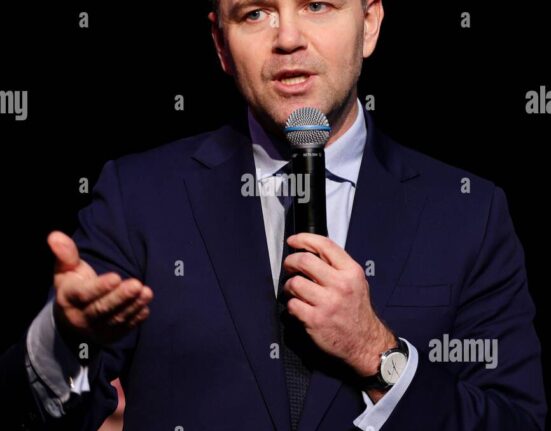Amidst a backdrop of opposing views, Albania’s parliament recently made waves by adopting a national Strategy on Disinformation. The move, aimed at implementing legal changes and safeguards in critical sectors like elections, media, and cybersecurity, has stirred up a whirlwind of debate.
Opposition parties and media unions have raised concerns about the government’s potential motives behind this strategy. There are fears that it could be wielded as a tool to tighten control over the media landscape. This skepticism led to opposition MPs boycotting the vote on the strategy, emphasizing their stance against what they perceive as an encroachment on press freedom.
The Special Anti-Disinformation Commission, spearheaded by ruling Socialist Party MP Erjon Brace, was responsible for crafting this controversial strategy. Brace justified the need for such measures by pointing to past cyberattacks targeting Albania and the country’s eagerness to align with European Union standards and other international partners in countering disinformation.
“The objective is clear: we must fortify our defenses against foreign interference in election processes,”
asserted Brace during the presentation of the strategy. Additionally, he emphasized safeguarding national security by bolstering alliances with entities like NATO, EU member states, and other allies to shield critical sectors from potentially harmful external financing.
The four key goals outlined in the strategy include building institutional capacities to ward off foreign meddling in elections, enhancing national security through strategic partnerships with global organizations, shielding vital sectors like the economy from hostile foreign funding infiltration, and promoting freedom of expression along with supporting investigative journalism.
Despite these stated objectives, critics remain wary. Opposition voices within Parliament argue that behind its facade of combating disinformation lies a hidden agenda aimed at curbing media independence under the guise of protecting national interests.
Isa Myzyraj, leading the Association of Journalists of Albania expressed his discontent with how things unfolded:
“The Disinformation Strategy presented…is a bad moment for democracy and media freedom.”
He highlighted concerns about inclusivity in developing this plan and underscored doubts regarding its true commitment towards fostering investigative journalism amid allegations that independent reporting has been stifled in Albania.
As discussions continue around Albania’s evolving media landscape and governmental interventions through strategies like these anti-disinformation efforts garner mixed reactions within society. While some view them as necessary steps towards safeguarding national interests and democratic values others perceive them as veiled attempts at consolidating power by muzzling dissenting voices in the press.









Leave feedback about this